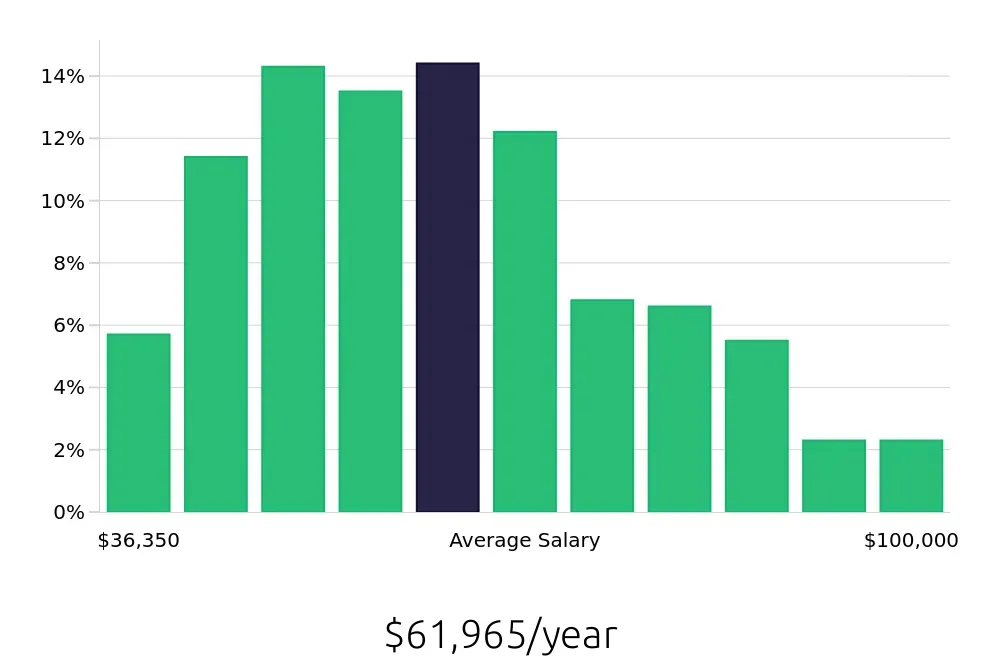What does a Safety Coordinator do?
A Safety Coordinator plays a crucial role in ensuring a safe work environment. This position involves creating and implementing safety policies to protect employees. The Safety Coordinator conducts regular safety inspections and risk assessments. They work with management to identify potential hazards and find ways to reduce them. Training employees on safety protocols is also part of their job.
The Safety Coordinator responds to accidents and incidents by investigating their causes. They prepare detailed reports and recommend improvements to prevent future occurrences. They stay updated on safety regulations and best practices. This role requires strong communication skills and the ability to work well with different departments. By prioritizing safety, the Safety Coordinator helps create a productive and healthy workplace.
How to become a Safety Coordinator?
Becoming a Safety Coordinator is a rewarding career path. It focuses on ensuring the safety and well-being of employees in various work environments. To embark on this career, follow these key steps:
- Obtain a high school diploma or GED. This basic qualification sets the foundation for higher education and training.
- Pursue relevant education. Consider a degree or certification in occupational safety and health. These programs offer essential knowledge and skills.
- Gain experience. Look for entry-level positions in safety or related fields. Experience helps build your resume and network.
- Obtain certifications. Obtain certifications such as the Certified Safety Professional (CSP) or Occupational Health and Safety Technician (OHST). These credentials boost your credibility.
- Network and apply for positions. Connect with industry professionals and apply for Safety Coordinator roles. Prepare a strong resume and cover letter.
Success in this field requires dedication and ongoing learning. By following these steps, you can advance in your career and contribute to safer workplaces.
How long does it take to become a Safety Coordinator?
Safety Coordinators play a vital role in ensuring workplace safety. The time needed to become one can vary. Most people start with a high school diploma or GED. They may then take college courses in safety management or related fields. Some employers prefer candidates with an associate or bachelor’s degree. Many coordinators also gain experience through internships or entry-level jobs.
The path to becoming a Safety Coordinator involves several steps. First, candidates should earn a relevant degree or certification. This often takes two to four years. After that, gaining practical experience is key. Many start in entry-level safety positions. With time, they advance to more complex roles. Continuous learning and staying updated on safety laws and practices are important. This often means attending workshops or earning additional certifications. All these steps help in becoming a competent Safety Coordinator.
Safety Coordinator Job Description Sample
We are seeking a dedicated and experienced Safety Coordinator to join our team. The ideal candidate will be responsible for developing, implementing, and managing safety programs to ensure a safe work environment for all employees.
Responsibilities:
- Develop and implement safety policies, procedures, and programs in compliance with regulatory requirements.
- Conduct regular safety inspections and audits to ensure adherence to safety regulations.
- Investigate accidents, incidents, and near-misses to determine root causes and implement corrective actions.
- Conduct safety training and orientations for new employees and ongoing training for all staff.
- Maintain accurate records of safety incidents, investigations, and training.
Qualifications
- Bachelor’s degree in Occupational Health and Safety, Environmental Science, or a related field.
- Certified Safety Professional (CSP) or equivalent certification preferred.
- Minimum of 3-5 years of experience in a safety coordinator or related role.
- Proven knowledge of safety laws, regulations, and standards.
- Excellent communication, interpersonal, and organizational skills.
Is becoming a Safety Coordinator a good career path?
A Safety Coordinator plays a crucial role in maintaining a safe workplace environment. This role involves ensuring that all workers follow safety rules and regulations. They conduct safety training sessions, inspect the workplace for potential hazards, and create safety policies. This position is essential in preventing accidents and ensuring compliance with safety laws.
Working as a Safety Coordinator offers both benefits and challenges. On one hand, it provides a chance to make a real difference in workplace safety. It also offers opportunities for professional growth and leadership. On the other hand, the role can be stressful due to the responsibility of preventing accidents and dealing with safety incidents. It may also require working irregular hours to ensure the workplace is safe.
Here are some pros of being a Safety Coordinator:
- Helps in preventing workplace accidents and injuries.
- Opportunities to grow and take on more responsibility.
- Job satisfaction from improving workplace safety.
Consider these cons before pursuing this career:
- High responsibility for worker safety can be stressful.
- May require working outside of regular business hours.
- Dealing with safety incidents can be challenging.
What is the job outlook for a Safety Coordinator?
The job outlook for Safety Coordinators is promising for professional job seekers. The Bureau of Labor Statistics (BLS) reports an average of 94,400 job positions opening each year. This steady demand makes it a reliable career path. Job growth is expected to increase by 3.3% from 2022 to 2032, according to the BLS. This growth reflects ongoing emphasis on workplace safety standards.
Safety Coordinators play a crucial role in maintaining safe environments. Their responsibilities often include conducting safety inspections and training employees. These tasks are vital in various industries, ensuring compliance with safety regulations. A career in this field offers stability and growth opportunities. With the right qualifications and experience, job seekers can advance and increase their earning potential.
The compensation for Safety Coordinators is competitive. The BLS reports an average national annual salary of $146,320. Hourly, the compensation stands at $70.35. These figures highlight the value employers place on safety expertise. Job seekers can expect a rewarding career with good earning potential. This makes Safety Coordinator a favorable career choice for those interested in health and safety.
Currently 360 Safety Coordinator job openings, nationwide.
Continue to Salaries for Safety Coordinator


